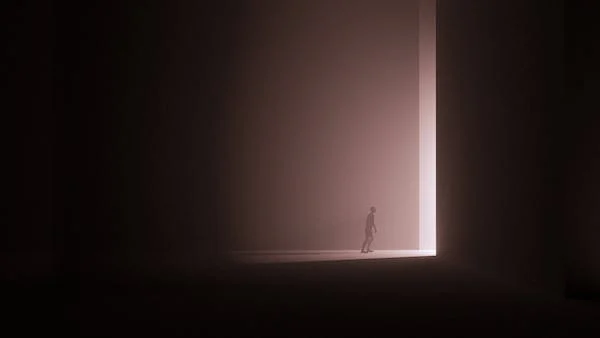
The end started a long time ago. I guess that’s always true in a sense. But this was years, really, even before the pandemic–for both of them, though mostly for her. As the dementia worsened and her care became more difficult, her daughters made that decision no one wants to make; the facility was nearby and they’d be able to see her and help calm and reassure her that things were as they should be. He went with her because that’s how it goes; they’d been together a long while. His presence was her lifeline for a time. We called their room “the apartment” so it seemed less awful. Even though the window looked over a grassy park, she didn’t fall for it.
She didn’t last long, anyway. Unexpectedly, he did. Has, I should say. In the physical sense, that is, despite COVID, which ravaged him then gave him (mostly) back. In the mental sense, he comes and goes: There’s a heavy door in his mind that creaks open now and then and he takes a step through, then turns back, unsure which way to go. It’s scary on both sides, familiar but also not. He’s caught in between, grabbing at this from one room and that from the other and trying to piece them together. Nothing quite fits.
My father always believed he would die in his 50s, as his father and uncle did, both from heart attacks. Genetics, after all…it was inevitable. As the years passed and his heart kept beating just fine (mostly thanks to a pacemaker, but still), he remained on that nervous edge. There are many ways to die, and he carried all of them around with him, scared of each and every one. If not the heart, something else would take him. Something.
And yet. On he goes: Well into his 9th decade his tiny, life-bruised body fails to fail. It’s miraculous with all that’s working against him—diabetes, kidney failure, prostate cancer, skin cancer, the pacemaker, near-blindness, the years themselves–what’s essential to his physical being is functioning just well enough. For better or worse.
But the brain, less so. “I’m a wreck,” is what he says a lot. Or he tries for a sentence and gives up after it comes out all wrong, letting me fill in the blanks. Dementia word salad, they call what’s said as the brain’s connections for self-expression fray. He yells things out sometimes, in an anxious, clipped voice: “Hipple!” “Hefflel!” “Kabibble!” To me in this is a vocabulary of silliness, remnants of our childhood–oddly comforting except there’s no smile with them as there once was. Now they are unbidden energy bursts, a coping tic.
And then, “Help!” Mostly he yells help. It seems more just a sound than a word for him, but surely there is meaning there, more than in the others. He wants a push or a pull. Please, someone, help me over the threshold, out of mental limbo into a space that at least makes sense, even if it’s the last room at the end of the hall with no window overlooking grass. I know that’s what he’s asking. When my mother was dying, she said it, too. “Help! Get me out of here!” She begged me, and her eyes were clearest in those moments.
I’m now the age my dad thought he would never reach, and I’m not afraid of death as much as of living as he is now living–in between rooms, in a stubborn body and a mind toggling between stay and go.
—–
Image by Mo Eid
I helped care for a grandparent who had Alzheimer’s. I very much understand this:
“ I’m not afraid of death as much as of living as he is now living–in between rooms, in a stubborn body and a mind toggling between stay and go.”
I just wanted to say that read your post. I understand.
Too many of us lately, are part of this awful cycle. I’ve finished my first half, too, waiting for the other shoe to drop. My heart is with you.
Been there, yes. Take good care.
This is so moving, so frightening and so sad. Thanks for being willing to share it with us.
Thank you all for your responses…it’s always comforting to be reminded I’m not alone!
This is incredibly beautiful and just as heavy. As a fellow caretaker, my heart breaks for us all